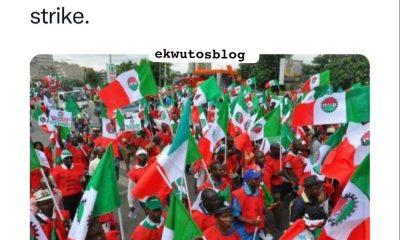Politics
Senegal’s president fights for mandate in parliamentary race
Politics
Imo State Reels Under Debts As Governor Uzodimma Owes N43billion To Contractors Amid N163billion Domestic Borrowings

Politics
Reps Summon CBN and Banks Over Unverified POS Operators
Politics
Reps Hold Closed-door Session to Discuss Tinubu’s Tax Reform Bills
-

 Politics9 months ago
Politics9 months agoNigerian Senate passes Bill seeking the establishment of the South East Development Commission.
-

 Business10 months ago
Business10 months agoInflation hits record high of 29.90% on naira weakness
-

 Politics6 months ago
Politics6 months agoBREAKING: Federal Gov’t Offers To Pay Above N60,000, Reaches Agreement With Labour
-

 SportsNews9 months ago
SportsNews9 months agoOlympic Qualifiers 2024: CAF Confirms Dates For Super Falcons Vs Banyana Banyana
-

 Politics9 months ago
Politics9 months agoGovernor Hope Uzodinma’s New Cabinet In Imo: The Gainers, The Losers
-

 Entertainment9 months ago
Entertainment9 months agoAmerican Singer Beyonce makes history as first Black woman to top country chart
-

 Politics6 months ago
Politics6 months agoBREAKING: Organized Labour suspends strike for one week.
-

 Business9 months ago
Business9 months agoReasons we cannot sell cement below N7,000, by Dangote, Bua, Lafarge















